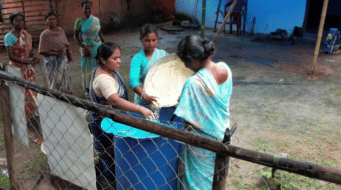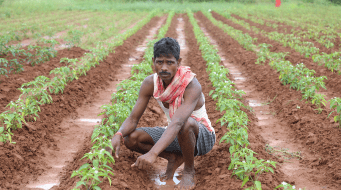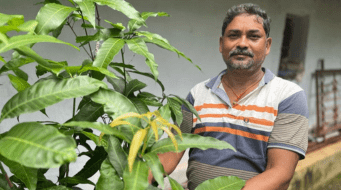-Bidisha Sinha
The elixir of happiness or satisfaction has kept human kind guessing from times unknown. From the realms of philosophy, the question has transcended social fields and moved into the boundaries of science. Each discipline has tried looking at the concept with ideas and expertise of its own—exploring different angles to the same Delphic topic.
What exactly is happiness or well-being or what is it that brings satisfaction to people? In conversational language, we often use the words “happiness”, “well-being”, “satisfaction” interchangeably. However, the nuance of each word, if carefully examined, opens up entirely new angles. Whatever be the word that we choose to examine, all disciplines agree that the composition of such a complex idea called “well-being” does not depend entirely on one specific thing. It is actually a multidimensional concept, bringing under its wings vast number of major and minor topics. While philosophical discourses encompass the attributes of freedom, social acceptance, health, capability, aspirations in a more abstract way, the social sciences have tried to quantify the concepts for better grasp. Wealth, access to education, market facilities, health facilities, social harmony form major determinants in shaping a person’s material well-being.
The earlier discussions on the topic centered on the fact that possession of wealth cannot guarantee well-being/ happiness. While opulence can never guarantee mental happiness, the absence of wealth is a major barrier towards achieving enabling life conditions leading to lowering of general satisfaction levels. Also, it has been observed a person’s wealth or education, asset holding is often influenced by the society she lives in, the neighbours she interacts with or her peers in her field of work. In short, well-being is a relative concept. While well-being is a very difficult subject to understand, we can definitely begin to explore parts of the concept in a structurally meticulous method.
The discourses in development fields have often spoken about Aspirations, Capabilities and Freedom of choice. A person’s aspiration is the result of her surroundings. Whether a person dreams big is often determined by whether other persons belonging to an identity similar to her is also dreaming big. An agent is, in most cases influenced by her “reference group” ie the group having similar identities of gender , caste , religion, wealth endowments etc. Her capability to perform over or under weighs what she actually has and her freedom to choose gives her an extra degree of movement, which human beings require for a respectable existence. Here also comes the question of giving due recognition to human diligence. Contrary to beliefs, external agencies and policy makers cannot and should not impose policies which they think are beneficial to the said population without actually understanding the demands and realisations of the population.
It has been often observed that the initial endowment and accumulation of wealth greatly depends on the caste of the concerned family. The accumulation of wealth with the upper caste has often lead to their trajectory of capabilities in a high arching pattern compared to that of the lower caste people. The semi arid regions of Maharashtra have been reeling under drought or low rainfall which acts as a major shock, offsetting capabilities and aspirations of the rural population every year. How a family reacts to this calamity also depends on his/ her capability, both financial and non financial, to react to the shock and take adaptive measures against future recurrence of the shock.
Thus, it is extremely necessary to understand the differences between Necessities, Satisfaction and Capabilities with references to caste and to see whether this plays a major role even today.
In a similar tone, gender and age could also play a decisive role in the shaping of well-being of a person. Assessment of vulnerability using the well being procedure, thus becomes a prerogative in any kind of implementation work to determine what the persons in project area actually need. This would also in turn, help us understand the vulnerabilities of the population.
While the study has been actually to understand the vulnerabilities of people in wake of climate change, the subjective perception of wellbeing vis-a-vis the objective evaluation of the economic and social conditions, their exposure to climatic and non climatic shocks and their ability to cope up with the shocks.
Well being is a really benevolent concept and lies beyond our understanding of numbers and statistics. Also, it cannot remain within the ambit of theoretical discourse is an urgent requirement.
How we define the boundaries of well being is a major challenge, and the discussion can be taken forward as how encompassing such a definition should be.





